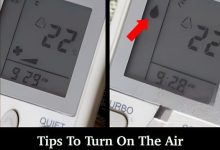Many people like hard-cooked eggs, but nothing is worse than eggs with a greenish yolk or those that seem impossible to peel.
The good news is that it’s easy to make perfect hard-boiled eggs. The bad news is that is also easy to make not-so-perfect ones. Read on for 4 tips for foolproof hard-cooked eggs.
What makes a perfect hard-boiled egg?

A perfect hard-boiled egg has a clear, white yolk that is creamy and firm but not rubbery. It also has a rich yellow color with no hint of a sulfur green ring.
In my book, a perfect hard-boiled egg also has a shell that is easy to remove.
A less than perfect hard-boiled egg has a cracked shell with egg white sticking out of it, a green ring around the yolk, and a shell that sticks so hard that it makes you want to tear your hair out.
Do your eggs end up with green yolks and shells sticking? Start with cold water and end with an ice bath for perfect easy-peel eggs.
4 tricks and tips for how to make perfect hard-boiled eggs
These 4 foolproof tips for hard boiling eggs show you how to cook the eggs so they turn out perfectly, every single time.
Follow these tips and your eggs will be cooked the way you want them to be, without a hint of green on the yolk, and they’ll also be very easy to peel.
1. Start with cold water

Start with the eggs in the pan in a single layer. Be sure there is room around the eggs. Crowded eggs will crack more easily.
If you drop eggs into water, they also might crack, so remember, gently put the eggs in the pan first, then the water!
Add cold water so that it sits at least an inch above the eggs. Cooking from cold water helps to prevent the egg shell from cracking.
Eggs that crack during cooking will allow the white membrane to come out of the crack. If the crack gets larger, it might allow water to enter the shell, which will result in a watery egg.
2. Bring water to the boil, remove and cover
Eggs crack more easily if you cook them in water that keeps boiling. This step helps to avoid that cracking.
You will want to bring the water to just boiling and then turn off the heat to let the eggs finish cooking.

Eggs that are boiled for prolonged times at a high heat also cause a chemical reaction that makes the yolks go green. This is not only unsightly, but it also gives the yolk a weird chemical taste which no one wants.
To prevent this, remove from the heat and cover with a lid when the water just starts to boil. This gives you a slow cooked hard boiled egg with no green yolk.

3. Let the eggs sit
Leave the eggs in the water for 9-12 minutes. The longer they sit, the firmer the yolk will be. At 9 minutes, they will have a firm but slightly soft yolk. At 12 minutes the yolk with be quite firm.
Smaller eggs need slightly less time and really big ones could add a bit more time.
4. Use an ice bath for perfect hard boiled eggs that peel easily
The process is not done when the eggs are cooked. You also need to get the darned shell off the egg. Using an ice bath cools the egg down and it makes them easy to peel.

An ice bath keeps the eggs from continuing to cook and lovers the egg’s temperature and minimize the pressure that makes a green sulfur ring form around the yoke.
How do you easily peel hard boil eggs?
Cold water, slow cooking and an ice bath are the tips that make hard boiled eggs peel easily.
While the eggs are cooking, prepare an ice bath. To do this, place water in a large bowl with plenty of ice cubes.
When the eggs are cooked, use a slotted spoon to remove them and immediately place them in the cold water. Let them sit for 10 to 15 minutes.

To peel the eggs, tap the bottom of the egg and then roll it with your palm on a counter top. The egg will develop cracks over the shell.
Start from the bottom where there is an air pocket and peel back the shell. The rest of the egg shell will peel off easily.
I find that peeling the cracked shell off is easier when I peel the eggs under running water or directly in the ice water bath. The water goes under the thin membranes and helps release the shell.

Some questions about perfect hard boiled eggs
I get questions all the time about hard boiling eggs. These questions will answer some of the problems you may have run into.
How long do you cook a hard boiled egg?
Perfect hard cooked eggs need to cook for 9 to 12 minutes. The range is so that your desired “doneness” is reached.
Some people enjoy a very firm yolk, and others like one that is cooked softly, not runny but not super firm.
The image below shows stages of eggs from the raw state, through soft cooking and up to hard cooked eggs on the right. Each few minutes of cooking time makes the yolk a little more firm.

Should I store fresh eggs upside down?
While not necessary, storing your eggs this way will make sure that the yolk ends up right in the middle of the egg when it is hard boiled.
It is also thought that the air pocket won’t rise completely through the egg, keeping the egg fresher.

Why do you add baking soda to water when you hard boil eggs?
Baking soda raises the pH of the white membrane and makes eggs easier to peel. This is because the bond between the egg white and inner membrane is released and egg will be less likely to stick to the shell.
Why add vinegar to the water for hard boiled eggs?
Eggs can sometimes crack when they are cooking, particularly if you boil them instead of letting them sit in water that has just boiled.
The acidity of vinegar will interact with the egg white and cause it to coagulate. If the egg cracks, the white may fill the crack instead of leaking out into the water.
Should I use old or new eggs when making hard boiled eggs?
The best eggs for hard boiling are at least 7-10 days old. The reason is that fresh eggs have a low pH which makes the egg stick more to the membrane under the shell. This makes them hard to peel.
My rule of thumb is that when my eggs are reaching their “best used by date” I hard boil them to use later. This makes sure that the eggs get used when they should and also gives me eggs that are easier to peel.







